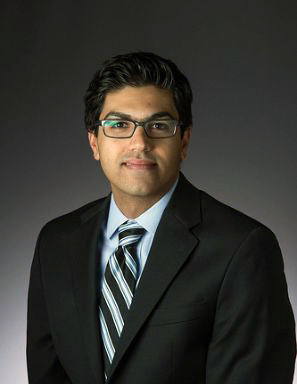Zero, One, and Everything in Between – Role of Quantum Computing in Shaping the Future Electric Grid
By Amin Khodaei, Professor of Electrical and Computer Engineering, University of Denver
18 maart 2024 11:00 t/m 12:00 - Locatie: Echo Arena, Building 29 - Door: DAI Energy lab | Zet in mijn agenda
Abstract
Safety, leisure, work, and now more than ever, education, heavily depend on a power grid that can reliably supply and deliver electricity to its customers while supporting other critical lifeline systems. The power grid, however, is becoming increasingly complex. The growing proliferation of intermittent renewable generation resources, the increased frequency and intensity of natural disasters and extreme weather events due to climate change, a rapidly electrifying transportation sector, and cyber vulnerability are just some of the complicating factors. The power grid is reaching the point where traditional grid control and decision-making built on classical computing methods may fail to address its evolving needs. A promising solution to this challenge is quantum computing. This talk highlights the role of quantum computing in building the reliable, resilient, secure, and clean future electric grid and elaborates on the challenges and opportunities expected to emerge along the way.
Short Bio
Dr. Amin Khodaei is a professor and past chair of the Electrical and Computer Engineering department at the University of Denver. His research is focused on the climate crisis, the grid of the future, and advanced technologies to modernize the grid, including artificial intelligence and quantum computing. He has authored/co-authored over 200 peer-reviewed technical papers, has advised over 40 graduate students and postdoc associates, and has managed over $10 million in grant funding. As an active member of the IEEE, he has served as the technical chair of the 2016 and 2018 IEEE PES T&D Conferences and the technical chair of the 2022 IEEE PES General Meeting. He is the author of the book, the Economics of Microgrids, published by IEEE/Wiley.

The AI for Energy and Sustainability (E&S) Think Tank is a series of events hosted by the Delft AI Energy Lab and the PowerWeb Institute. The 2023 Think Tank edition will focus on AI for Distribution Grids and feature the new AI for Energy Grids Lab (part of Innovation Center for AI) with Alliander, Radboud University, University of Twente and TU Delft. Every third Monday between 13:00-14:00 CET, we zoom in on research with either a promising Artificial Intelligence method or their promising use for energy and sustainability challenges, with and by researchers mostly in the Netherlands. You can participate, learn, make connections, inspire and be inspired for new research for AI for E&S.